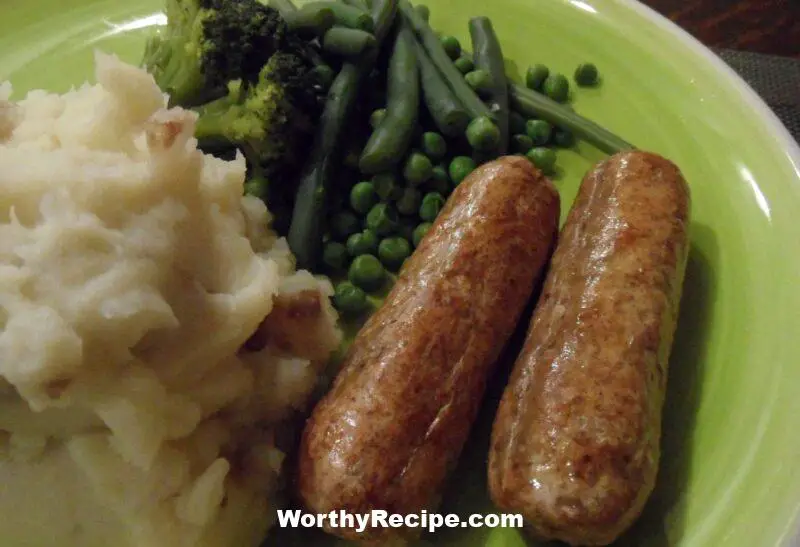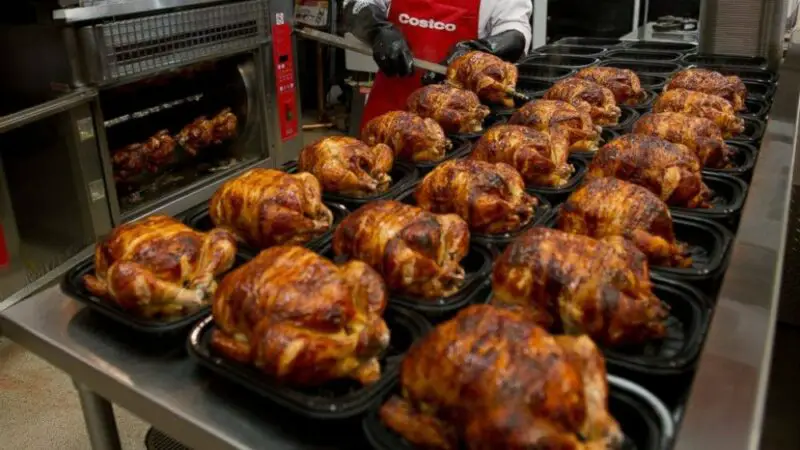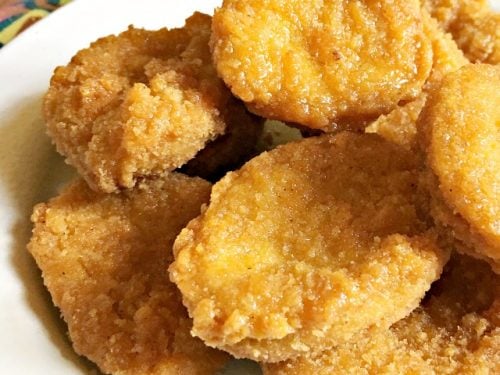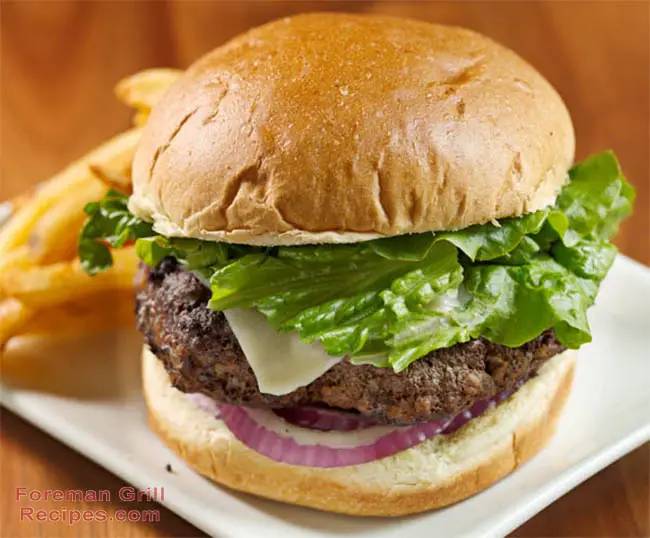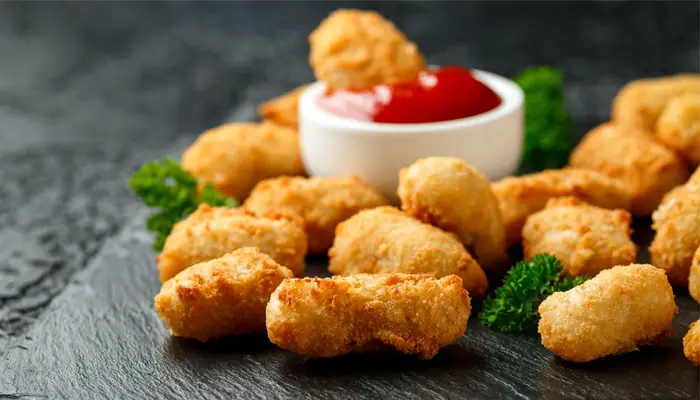Best Oils for Frying Dumplings
Choosing the right oil to use when frying dumplings is essential if you want to achieve perfectly crispy and golden brown results. The type of oil you choose can affect the flavor, texture, and overall quality of your dumplings. In this article, we’ll explore some of the best oils for frying dumplings and discuss their properties, advantages, and disadvantages. We’ll also provide tips on how to select the right oil for your dumpling recipe, how to handle and store different types of oil, and how to fry your dumplings like a pro.
Types of Oils for Frying Dumplings
There are several types of oils that work well for frying dumplings. Some of the most popular options include vegetable oils, peanut oil, sesame oil, and coconut oil.
Vegetable Oils
Vegetable oils are a common choice for frying dumplings due to their neutral flavor, high smoke point, and affordable price. They are made from various plant sources such as soybeans, canola plants, sunflowers, or corn.
Canola oil is one of the most versatile vegetable oils on the market and has a mild flavor that won’t overpower your food. Its smoke point is relatively high (400-450 degrees Fahrenheit), which means it can be heated to a high temperature without burning or smoking out of control. Soybean oil is another popular vegetable oil option that works well for frying dumplings. It has a slightly nutty taste that complements savory dishes.
Sunflower oil has a mild flavor that works well with most ingredients but can get pricey when compared to other vegetable oils. While corn oil’s delicate flavors completely disappear when heated at high temperatures, its smoke point is extremely high (450F). Still, it is not the healthiest of all options.
When using vegetable oils for frying dumplings, make sure you choose one that has been refined or filtered to remove impurities, as unrefined oils can burn more easily. It’s also vital to monitor the temperature of your oil carefully and avoid overheating it, which can cause it to smoke and become a fire hazard.
Peanut Oil
Peanut oil is a popular choice for frying Asian-style dumplings due to its mild nutty flavor and high smoke point. It is also rich in monounsaturated fats, which are thought to be good for heart health. However, peanut oil can be volatile if not handled correctly – it is combustible and becomes rancid quickly. Therefore you should always store peanut oil in a cool, dark place and avoid exposing it to heat or light.
When using peanut oil for frying dumplings, ensure that the oil is sufficiently hot before adding your ingredients. Since peanut oil has a higher smoke point than many other oils (450°F), it can create bubbles and spatter if the ingredients haven’t been adequately blotted dry before placing them in the pan. It’s also essential to use a high-quality peanut oil that is free from any impurities or additives to ensure optimal results.
Sesame Oil
Sesame oil has a distinct nutty taste that makes it an ideal ingredient for dipping sauces or dressings when paired well with fried foods—originally used primarily around Asia as dipping sauces like soy sauce in China. These days sesame sauce has taken a famous spot on supermarket shelves worldwide.
When used correctly, sesame oil can add depth and nuttiness to your fried dumplings. Sesame oil has a low smoke point and should be used sparingly while frying dumplings to prevent the oil from burning or losing its flavor. You can also add a drizzle of sesame oil to your completed dish to give it an extra layer of richness and depth.
Coconut Oil
Coconut oil has become a trendy ingredient in recent years due to its numerous health benefits, which include boosting energy levels, aiding digestion, and supporting healthy brain function. It’s also a versatile cooking oil that can be used for frying dumplings due to its delicate flavor and high smoke point (350°F). As an added bonus, coconut oil also contains medium-chain triglycerides (MCTs), which are thought to help reduce body fat and increase muscle mass.
When using coconut oil for frying dumplings, select an unrefined and virgin coconut oil that hasn’t been hydrogenated. Refined coconut oils have higher smoke points but may contain unhealthy trans fats.
Choosing the Right Oil for Your Dumplings
Selecting the right oil for your dumplings involves considering several factors, such as smoke point, flavor profile, and nutritional value. The smoke point refers to the temperature at which an oil begins to break down and release smoke. An oil with a high smoke point is ideal for frying because it can withstand high temperatures without burning or smoking.
The flavor profile of the oil will also determine how well it goes with your dumpling recipe. For example, if you’re making spicy chicken dumplings, you may want to use peanut or sesame oil to enhance the heat and nutty flavors in your dish. In contrast, if you’re making vegetable or seafood dumplings, you might opt for canola or vegetable oils due to their more restrained flavors.
Lastly, nutritional value is an essential factor to consider. Choose an oil that is low in saturated fats, trans fats and has higher levels of monounsaturated or polyunsaturated fats. This will provide heart-healthy benefits and result in fewer calories.
The Importance of Proper Technique
No matter which oil you use, it’s crucial to use proper technique when frying dumplings to achieve the desired results. Overcrowding the pan with too many dumplings can cause them to stick together and cook unevenly. Additionally, if you’re using a pan instead of deep-frying your dumplings, make sure that they are half submerged so that they cook evenly.
When heating your oil, ensure it reaches the optimal temperature before adding your ingredients. Each type of oil will have a different temperature to its ideal smoking point. It is important to never leave hot oil unattended and avoid splattering by holding onto the food being fried with care while placing it on the hot oil.
Conclusion
Choosing the best oil for frying your dumplings can make or break their quality, texture, and taste. Experimenting with different oils while considering factors such as smoke point and flavor profile can result in delicious creations that would tickle your taste buds. Additionally, following cooking techniques like avoiding overcrowded pans and monitoring the temperature of your oil can go a long way in achieving desirable results.
Whether you opt for vegetable oils or specialty oils like peanut or coconut oil, each one has unique properties that can enhance the flavors in your dumpling recipes. By keeping these tips in mind and practicing safe cooking habits, you’ll be well on your way to mastering the art of perfectly crispy fried dumplings.
What are the different types of oil that can be used to fry dumplings?
There are a variety of oils that can be used to fry dumplings, including vegetable oil, canola oil, peanut oil, and sunflower oil. Each of these oils has its own unique flavor profile and smoke point, so it’s important to choose the right one based on personal preference and cooking technique.
Which oil is the best for frying dumplings?
The best oil for frying dumplings depends on a variety of factors such as smoke point, flavor, and nutrition. However, vegetable oil or canola oil are two of the most commonly used oils due to their smoke points and neutral taste. Peanut oil is also a popular choice for its high smoke point and nutty flavor.
Can you reuse the oil used to fry dumplings?
Yes, you can reuse oil used to fry dumplings as long as it’s been properly strained and stored. However, it’s recommended that you only reuse the oil once or twice before discarding it. Reusing oil too many times can result in a decrease in quality and increase in health risks.
Is there any special preparation needed before using the oil for frying dumplings?
Before using any type of oil for frying dumplings, it’s important to ensure that the oil has reached the desired temperature before adding the dumplings. Additionally, make sure that any excess water has been removed from the dumplings before frying to prevent splatters and ensure even cooking.

